On September 18, the Department of Education and Training of Ho Chi Minh City organized a workshop on "Strengthening the building of a healthy school environment, not using mobile phones during recess". It is expected that from January 2026, Ho Chi Minh City will simultaneously implement this regulation in all general education institutions in the area.
The school yard is quiet at recess.
Having "made a splash" in the 2024-2025 school year with the regulation banning the use of cell phones at school, Mr. Luong Van Dinh, Principal of Thanh Loc High School (An Phu Dong Ward), said that the school has boldly applied this policy, including during recess.
According to Mr. Dinh, the regulation prohibiting the use of phones at school comes from the fact that during recess, instead of interacting with friends, many students are engrossed in their phones, rarely talk, and even almost "live in a virtual world". Traditional sports and entertainment activities are neglected by students, the schoolyard becomes quiet, lacking the inherent excitement of school age. Many students indulge in social networks, comment negatively, gossip, and even insult each other, leading to conflicts and unfortunate cases of school violence.
"These things urgently require a strong and creative solution to change the current situation, a breakthrough step to create a positive, healthy and humane school environment," Mr. Dinh emphasized.
The principal of Thanh Loc High School said that when this regulation was announced, many students expressed their discomfort, saying that they needed to use their phones to contact their parents when necessary; were afraid of missing important information from friends and study groups; needed to consult information online to study during recess... To address this concern, the school has equipped a public phone in the Student Affairs Office, to serve when students need to contact their parents or vice versa. The school also assigned student affairs officers to be on duty to support students in emergency situations.
Along with that, Thanh Loc High School applies many creative models during recess to fill the "gap" when students do not have phones, such as building sports clubs, art, cultural, intellectual activities, open learning spaces... "After nearly a year of implementation, the school has recorded many positive results, such as students being more focused in class, less distracted. Students become more active and enthusiastic during recess; conflicts and disagreements on social networks have significantly reduced. Many students have reduced pressure and stress; overweight and obesity have also significantly reduced..." - Mr. Dinh informed.
Thanh Loc High School also encourages students, parents, and teachers to record their feelings. Many parents acknowledge the positive changes in their children and express their thanks to the school for being determined and creative in managing students.
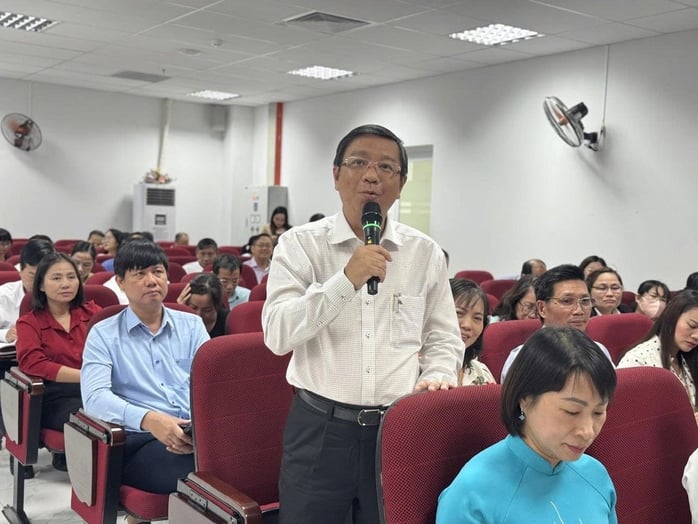
Mr. Do Minh Hoang, Director of Chu Van An Continuing Education Center (An Dong Ward, Ho Chi Minh City), spoke at the workshop.
"Phone bag" model
Luong The Vinh High School (Cau Ong Lanh Ward) has also persistently applied the regulation prohibiting students from using mobile phones on school grounds since its establishment in 2004.
According to Ms. Huynh Thi My Hang, Vice Principal of Luong The Vinh High School, the use of cell phones in the school environment brings many challenges, such as distracting students, affecting the quality of learning, and even leading to mental health problems. Realizing this, since its establishment, Luong The Vinh High School has persistently implemented the regulation prohibiting students from using cell phones on school grounds.
"This regulation is not only a management measure but also part of the educational philosophy, to help students focus on studying and extracurricular activities," Ms. Hang explained.
To implement the regulation, Luong The Vinh High School has implemented the "phone bag" model. During school time, students are absolutely not allowed to access their phones, except in case of emergency, they are allowed to contact the school office. This model not only helps students avoid the temptation of mobile devices but also trains self-awareness and collective responsibility.
Ms. Hang affirmed: "After more than 20 years of implementation, we are proud that 100% of the school's students do not use mobile phones on campus. Their learning results are increasingly high, with a university entrance rate higher than the city's average. The school's reputation has also been enhanced."
To do this, Ms. Hang believes that consensus is very important, starting from within the teachers, then to the students and parents to create a solid foundation. Along with that, the school must effectively and continuously propagate, not only stopping at informing but also explaining the benefits clearly so that everyone voluntarily complies. Management needs to be strict but flexible, avoiding creating a sense of pressure, by combining with positive alternative activities. In addition, the school also monitors and regularly adjusts regulations, based on feedback from relevant parties.

The Ho Chi Minh City education sector wants students to actively participate in meaningful activities at school, instead of depending on their phones.
No ban on extremism
Recognizing that limiting students' use of cell phones in schools is a correct policy, many opinions at the above workshop proposed solutions for implementation.
Mr. Nguyen Trong Nghia, Vice Principal of Doan Ly Tu Trong School (Binh Tho Ward), proposed groups of solutions, including: Organizing the Youth Union and Team to increase exchanges and physical training; taking advantage of school facilities, designing playgrounds, competitions, and sports training on the school grounds, creating a competitive atmosphere. In addition, organizing clubs, teams, academic playgrounds, and creative experiences to nurture students' passion for scientific research; organizing cultural and artistic exchanges, radio programs for young people, teenagers, etc.
Dr. Nguyen Van Hieu, Director of the Department of Education and Training of Ho Chi Minh City, said that smartphones not only bring benefits to students but also pose many risks if there is no guidance. He said: "In the context of science and technology development, mobile phones have become a part of life. Students also need this device to contact their parents and support their studies. However, if used without control, phones can cause dependence and negatively affect their development."
According to Mr. Hieu, in fact, there have been many cases of students being scammed online. With just simple tricks, bad guys have penetrated the personal information of students and their families. Some students were lured to dangerous places, becoming victims of criminal networks. Some cases were discovered and rescued by the police in time, but there were also cases with heartbreaking consequences.
To prevent this situation, many schools have applied various measures: from propaganda, coordination with parents to student disciplinary action. However, Mr. Hieu commented that each school has different conditions and methods, and the effectiveness is not uniform.
"The Department of Education and Training's viewpoint is not to absolutely ban students from bringing phones to school. However, phones should only serve essential needs, supporting learning and communication when needed. We should not be extreme in banning them, but rather guide them to proactively use phones appropriately, safely, and without becoming dependent," Mr. Hieu emphasized.
Pilot at 16 schools from October 2025
According to the draft, the plan to limit the use of phones and electronic devices during recess at educational institutions in Ho Chi Minh City will be implemented in two phases.
Phase 1, piloted at 16 schools, starting from October 2025 until the end of semester 1 of the 2025-2026 school year. Phase 2, from January 2026, will be deployed simultaneously at all general education institutions in the area.
According to the plan, each school has at least 3 diverse alternative activities during recess. Students participate in at least one group activity, and there is no longer a situation of using phones for personal entertainment during recess.
The draft also clearly states that depending on the actual situation, educational institutions should develop plans and procedures for managing students' cell phones appropriately. The school board must assign a "supervision team" consisting of teachers on duty, Youth Union - Young Pioneers, and Red Star Student Teams. The Department of Education and Training will promptly commend and reward groups and individuals who perform well, and at the same time remind and criticize violations.
Source: https://nld.com.vn/hoc-sinh-se-han-che-dung-dien-thoai-trong-truong-196250918214931698.htm


![[Photo] Prime Minister Pham Minh Chinh chairs a meeting of the Government Standing Committee to remove obstacles for projects.](https://vphoto.vietnam.vn/thumb/1200x675/vietnam/resource/IMAGE/2025/10/06/1759768638313_dsc-9023-jpg.webp)




![[Photo] Prime Minister Pham Minh Chinh chaired a meeting of the Steering Committee on the arrangement of public service units under ministries, branches and localities.](https://vphoto.vietnam.vn/thumb/1200x675/vietnam/resource/IMAGE/2025/10/06/1759767137532_dsc-8743-jpg.webp)


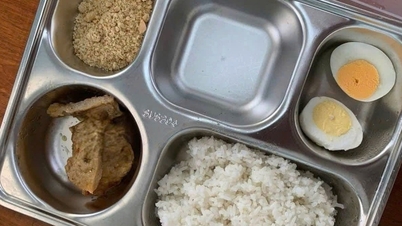


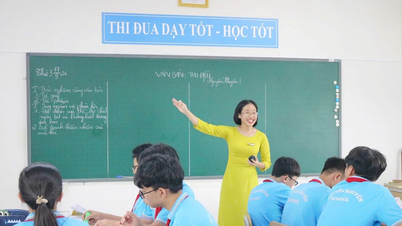


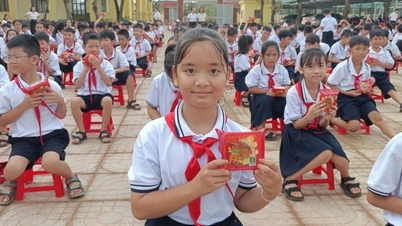









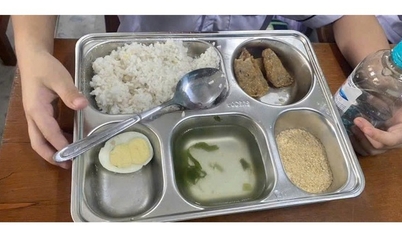






























































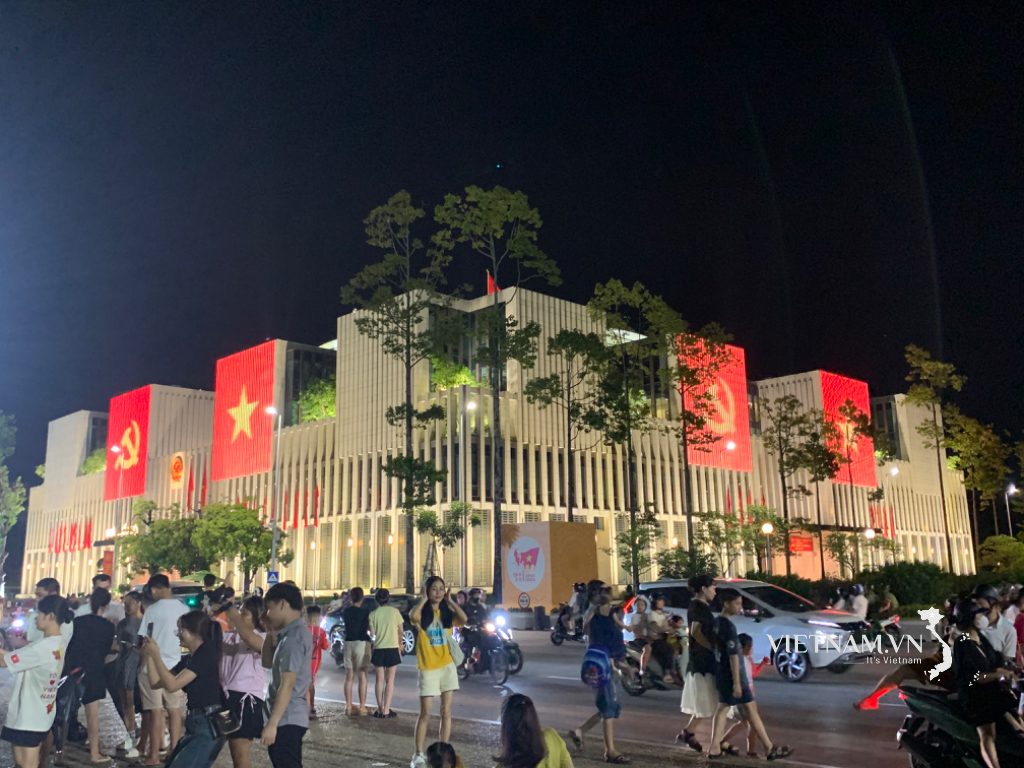



Comment (0)